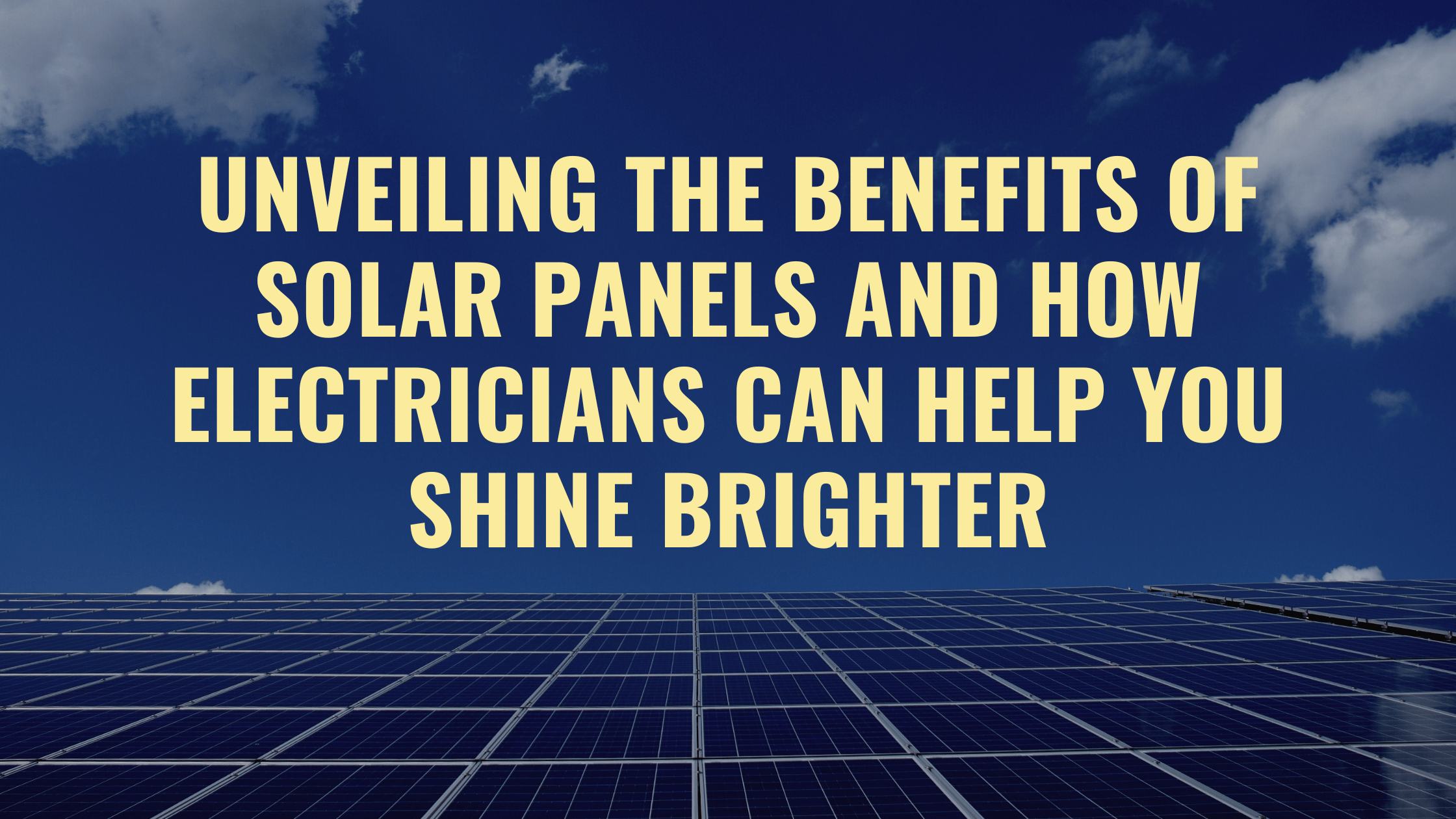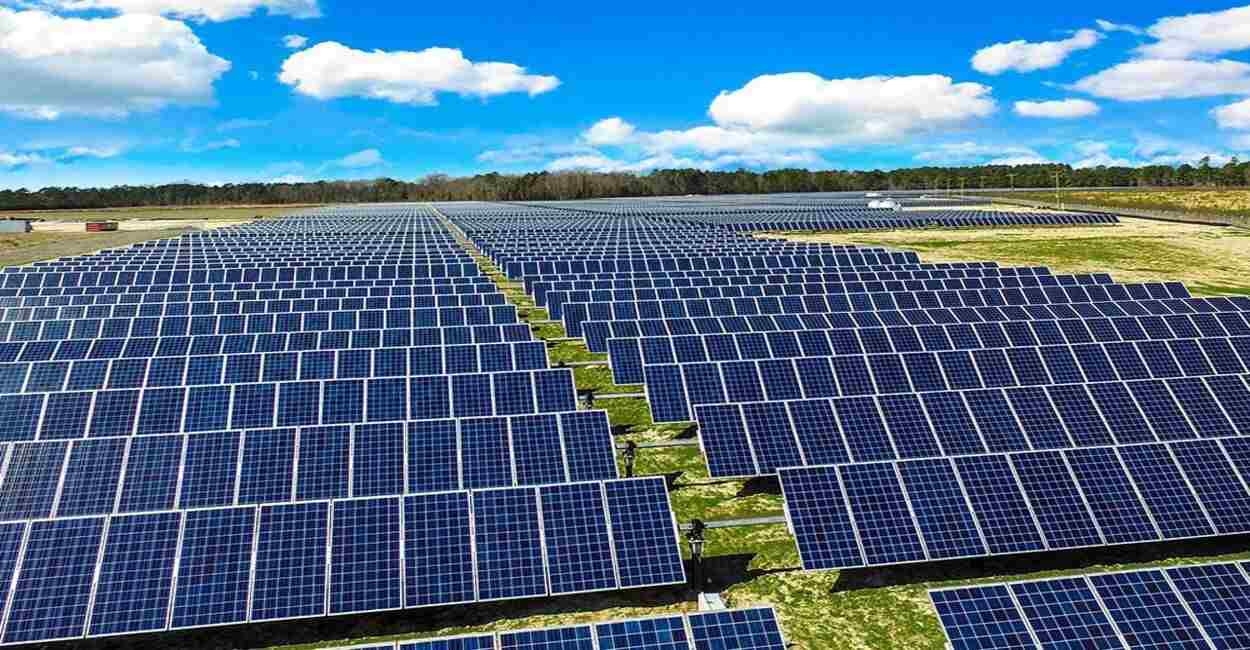Simply Solar Illinois: Solar Panel Specialists for High-Quality Energy Solutions
Simply Solar Illinois: Solar Panel Specialists for High-Quality Energy Solutions
Blog Article
Exactly How Solar Power Can Assist You Save Cash and Minimize Your Carbon Footprint
The integration of solar power right into your energy profile presents an engaging opportunity for both economic savings and environmental stewardship. As numerous government rewards come to be readily available, the question develops: just how can one properly browse the preliminary financial investments and continuous advantages of solar technology to make the most of both economic and environmental gains?
Understanding Solar Energy Savings
While the transition to solar energy frequently includes a first investment, comprehending solar power cost savings is important for house owners and services alike. Solar power systems can substantially lower power costs by harnessing the sunlight's power, translating into substantial long-term economic advantages.
In addition, solar power systems may qualify for numerous economic rewards, including tax obligation credit ratings and discounts, even more improving their cost-effectiveness. The availability of net metering enables customers to offer excess energy back to the grid, creating an added profits stream. These variables add to the total cost savings related to solar power.

Along with guide financial financial savings, solar power supplies the included advantage of increasing home value. Homes geared up with solar panels are frequently more appealing to customers, as they guarantee lower energy prices - Simply Solar Illinois. Recognizing these components is vital for any individual taking into consideration solar energy, as it highlights not simply the prospective monetary gains, however also the wider environmental and economic benefits of embracing renewable resource options
Initial Costs vs. Long-Term Benefits
When evaluating solar energy, it is vital to consider the initial prices against the long-lasting benefits. The upfront investment for solar panels, installment, and associated equipment can be significant, usually varying from $15,000 to $30,000, depending upon the system size and home power requirements. This first expense may discourage some homeowners; however, it is critical to think about the potential cost savings over time.
As soon as installed, solar energy systems can considerably reduce or perhaps remove month-to-month electrical power costs, resulting in significant long-lasting economic advantages. Research studies suggest that property owners can conserve anywhere from $10,000 to $30,000 over the lifespan of their planetary system, commonly 25 years. Furthermore, many states use motivations, tax credit histories, and refunds that can offset preliminary prices, making solar more easily accessible.

Decreasing Your Carbon Impact
Decreasing your carbon impact is an essential consideration in today's eco conscious culture, and adopting solar energy is one of one of the most effective techniques to attain this goal. Solar power is a tidy, eco-friendly resource that considerably reduces reliance on nonrenewable fuel sources, which are significant factors to greenhouse gas emissions.

Additionally, the extensive adoption of solar modern technology motivates the growth of eco-friendly jobs and supports developments in energy storage and performance. The have a peek at this website even more people and organizations buy solar energy, the better the cumulative decrease in carbon exhausts, cultivating a cleaner atmosphere for future generations.
Government Motivations and Refunds
Adopting solar power not just benefits the atmosphere but can also result in considerable monetary savings, particularly with the accessibility of federal government motivations and rebates. Different government, state, and regional programs are made to motivate homeowners and services to spend in solar energy systems, making the shift extra affordable.
One of the most famous motivations is the Federal Investment Tax Credit Scores (ITC), which enables solar system proprietors to subtract a significant percentage of the installation expenses from their federal taxes. This reward has actually been essential in lowering the ahead of time expenses connected with solar energy systems. Additionally, numerous states provide their own tax credit scores, grants, description and rebates that can even more improve cost savings.
Moreover, some regional governments supply real estate tax exceptions for solar setups, making sure that house owners do not deal with enhanced real estate tax as a result of their renewable power financial investments. Utility companies may also use incentives, consisting of web metering and feed-in tariffs, which allow solar power individuals to offer excess power back to the grid.
Choosing the Right Planetary System
Choosing the suitable solar system is crucial for making best use of power effectiveness and financial advantages. The decision depends upon numerous aspects, including energy needs, budget plan, and offered area. Property owners should start by evaluating their electricity intake to figure out the system size needed for ideal efficiency.
Next, consider the various types of solar technologies readily available. Simply Solar Illinois. Solar (PV) panels are one of the most typical, transforming sunlight straight into electricity, while solar thermal systems concentrate on heating water. Each kind has distinct advantages depending on specific needs
Budget factors to consider are additionally critical. First installation expenses can differ significantly, so it is very important to compare quotes from numerous carriers and check out funding options. Government rewards and discounts can further minimize the economic burden, making solar systems a lot more available.
Verdict
In summary, solar power provides a feasible solution for achieving significant cost savings while all at once minimizing carbon emissions. The preliminary financial investment, though significant, yields considerable long-lasting monetary advantages, with prospective cost savings varying from $10,000 to $30,000 over 25 years. The environmental advantages of solar energy add to lasting methods crucial for combating environment adjustment. Federal government motivations boost the usefulness of solar technology adoption, urging a change in the direction of a cleaner, a lot more financially effective energy source.
Report this page